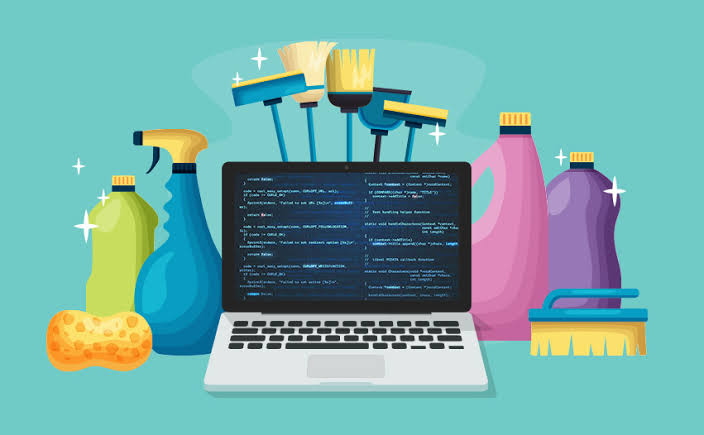How to write clean and maintainable code in your web applications.
 Ukeme Etuk
Ukeme Etuk
As a web developer, writing clean and maintainable code is crucial for the success of your web application. It not only improves the readability and understandability of your code but also reduces the chances of introducing bugs and errors. Clean code is also easier to maintain and update, which is essential as your application grows and evolves over time. In this article, we will explore some of the best practices and techniques for writing clean and maintainable code in your web applications.
One of the fundamental principles of writing clean code is to follow a consistent coding style and structure. This makes it easier for other developers to read and understand your code, and also helps you maintain a clean and organized codebase. Adopting a coding standard or using a code style guide can help you achieve this goal. Another important aspect of clean code is to keep your functions and classes small and focused. This makes it easier to test, debug, and modify your code, and also makes it more reusable.
Clean and maintainable code also requires careful consideration of the design and architecture of your application. This includes separating concerns, such as keeping your presentation, business logic, and data access layers separate. You can achieve this by using a design pattern such as Model-View-Controller (MVC) or Model-View-ViewModel (MVVM). Another essential aspect of maintainable code is to write code that is easy to extend and refactor. By following the SOLID principles of object-oriented design, you can create code that is more flexible and adaptable to changes in requirements over time.
Best practices for writing clean and maintainable code in web applications.
Writing clean and maintainable code is crucial for any software project, especially for web applications that need to be maintained and updated frequently
1. Follow coding standards:
Consistency is key to writing clean and maintainable code. You should follow a set of coding standards that define things like naming conventions, code formatting, and commenting guidelines. Some popular coding standards are Google's JavaScript Style Guide and Airbnb's JavaScript Style Guide.
2. Write readable code:
Your code should be easy to read and understand. Use descriptive variable names, comments, and code structures that make sense. Avoid cryptic abbreviations and unnecessary complexity.
3. Use modular design:
Break your code into smaller, reusable modules that have a single responsibility. This makes it easier to test, debug, and maintain your code. You can use design patterns like MVC (Model-View-Controller) or MVVM (Model-View-ViewModel) to achieve modular design.
4. Avoid global variables:
Global variables can cause unintended side effects and make your code harder to reason about. Instead, use local variables and pass them as arguments to functions.
5. Use version control:
Version control systems like Git allow you to keep track of changes to your code and collaborate with other developers. Use a branching strategy like Gitflow to keep your codebase organized and minimize merge conflicts.
6. Test your code:
Writing automated tests ensures that your code behaves as expected and catches bugs before they make it into production. Use a testing framework like Jest or Mocha to write unit tests, integration tests, and end-to-end tests.
7. Refactor regularly:
Refactoring means improving the design of your code without changing its behavior. Regularly reviewing your codebase and refactoring it to follow best practices will make it more maintainable and easier to work with in the long run.
In conclusion, writing clean and maintainable code requires discipline and good coding practices. By following the best practices discussed above, you can make your codebase more organized, readable, and easy to maintain.
Subscribe to my newsletter
Read articles from Ukeme Etuk directly inside your inbox. Subscribe to the newsletter, and don't miss out.
Written by

Ukeme Etuk
Ukeme Etuk
Meet Uksman, a multi-talented full-stack developer and content writer from Nigeria. With a passion for innovation and creativity, He specializes in crafting clean, efficient, and scalable web and mobile applications that delight users and solve complex business problems. As a skilled content writer, He has a way with words that captures the attention of readers and engages them in meaningful conversations. With a deep understanding of user needs and business goals, he is able to create compelling content that drives conversions and generates results. Whether working on a solo project or collaborating with a team, he brings a wealth of experience, knowledge, and expertise to the table. With a focus on continuous learning and improvement, Uksman stays up-to-date with the latest trends, technologies, and best practices in the industry. If you're looking for a talented full-stack developer and content writer who can turn your ideas into reality, look no further than Uksman.